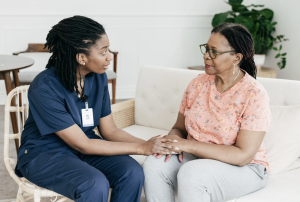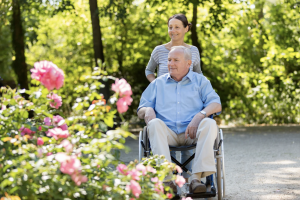Early Signs Of Dementia
When a loved one starts to display early dementia symptoms, it can be difficult on you and your family. However, detecting those symptoms can be challenging as well. With that said, there are ways to determine if your loved one is displaying these symptoms or not. Here are dementia’s early symptoms and what to do.
Short-Term Memory Loss
First off, one of the earliest symptoms is trouble with short-term memory. Things that happened just minutes ago may slip their mind. On the other hand, their long-term memory may still be completely normal. When frequent short-term memory lapses begin, this is one of the dementia early symptoms to take note of.
Communication Issues
Is your loved one frequently struggling to find the right words? Trouble communicating is another major indication of dementia’s early symptoms. Even more, they may start communicating less in general. If communication is starting to fade and struggle, you should take note that this is often a sign of dementia.
Confused & Distracted Behavior
Confusion is another common early symptom of dementia. If your loved one has trouble remembering names and faces, this could be an indication of mental decline. They may show signs of foggy thinking with everyday tasks as well.
What To Do
Scheduling a doctor’s visit for your loved one is always a good idea. By getting a professional opinion through tests and evaluations, you will have a better idea of your loved one’s state of mind. Furthermore, it is time to start considering assisted living for your loved one. Essentially, this can give them much needed support and boost their quality of life.
Offering Peace Of Mind
You deserve peace of mind that your loved one is receiving the best care possible. At Courtyard Manor, we offer a quality of life you can’t find anywhere else. Our 24/7 nursing staff is here to give your loved one with dementia the compassion and service they deserve. Visit our site to learn more.
Reach Out To Us

How to Talk with a Parent About Moving Into Assisted Living
Guidance for Meaningful Conversations Conversations about assisted living are never easy. For many families, the topic comes up when health and daily living needs begin

Integrating Physical and Behavioral Health in Senior Living
Whole-Person Care for Seniors In senior living communities, quality care means looking beyond the immediate physical needs of residents. True wellness requires an integrated approach

Supporting Cognitive Health in Assisted Living
Daily Enrichment for Seniors As we age, maintaining cognitive health becomes just as essential as caring for our physical well-being. Cognitive decline doesn’t happen overnight—it’s


